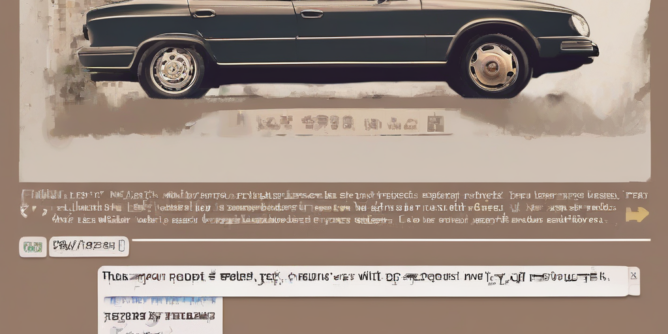
Donate Your Car for Cash: A Comprehensive Guide to Maximizing Your Return
Donating your car for cash can be a surprisingly lucrative and rewarding experience. It’s a win-win situation: you get rid of an unwanted vehicle, potentially receive a tax deduction, and support a worthy cause. However, navigating the process requires careful planning and understanding. This comprehensive guide will walk you through every step, helping you maximize your return and ensure a smooth transaction.
Understanding the Process: How Does Donating a Car for Money Work?
The process involves finding a reputable charity that accepts vehicle donations, transferring ownership, and receiving either a cash payment or a tax deduction (or both, depending on the organization). Unlike selling your car privately, you bypass the hassle of advertising, negotiating with buyers, and handling paperwork. The charity handles all the logistics.
Key Players: Charities and Donation Processors
- Charities: Many non-profit organizations accept car donations. They often partner with vehicle donation processing companies to handle the actual sale or auction of the vehicle.
- Donation Processors: These companies facilitate the donation process. They arrange for the vehicle’s pick-up, handle the title transfer, and ensure the charity receives the proceeds from the sale.
The Donation Process Step-by-Step
- Research Charities: Identify charities aligned with your values. Check their ratings with organizations like Charity Navigator or GuideStar to ensure legitimacy and financial transparency.
- Contact the Charity: Contact the chosen charity or its donation processing partner. Provide information about your vehicle, including make, model, year, condition, and mileage.
- Schedule Pickup: Arrange a convenient time for the charity to pick up your vehicle. This is usually free of charge.
- Sign the Title: Sign the title over to the charity or donation processor. Ensure you retain a copy for your records.
- Receive Your Tax Deduction (if applicable): The charity will send you a tax receipt, which you can use to claim a tax deduction on your income tax return. The amount of the deduction is typically the fair market value of the car at the time of donation, which may be less than what a private sale would yield.
- Receive Cash Payment (if offered): Some organizations offer cash payments for donated vehicles, particularly if the car is in good condition. Inquire about this possibility during your initial contact.
Maximizing Your Return: Tips for Getting the Best Deal
While the primary benefit of donating a car might be the charitable contribution, you can still maximize your financial return by following these strategies:
1. Assess Your Vehicle’s Value
- Online Valuation Tools: Use online resources like Kelley Blue Book (KBB) or Edmunds to get an estimate of your car’s fair market value.
- Consider Condition: A vehicle in good running condition will fetch a higher value than one needing significant repairs.
- Document Repairs: Keep records of any recent repairs or maintenance. This can increase the perceived value.
2. Choose the Right Charity
- Reputation and Transparency: Select a reputable charity with a proven track record and transparent financial practices.
- Vehicle Donation Programs: Ensure the charity actively participates in or partners with a reliable vehicle donation program.
- Compare Offers: Contact multiple charities to compare their offers and terms.
3. Prepare Your Vehicle
- Clean the Interior and Exterior: A clean car presents better and may increase its perceived value.
- Gather Necessary Documents: Have your vehicle’s title, registration, and any repair records readily available.
- Remove Personal Belongings: Completely empty the vehicle before the pickup.
4. Understand Tax Implications
- Fair Market Value: Your tax deduction is limited to the fair market value of the vehicle. You’ll need to determine this value based on reliable sources.
- Itemized Deductions: Car donations are typically itemized deductions. You need to itemize your deductions on your tax return to claim the benefit.
- Consult a Tax Professional: If you have questions or complex tax situations, consult with a qualified tax advisor.
5. Negotiate (if possible):
While many charities have set procedures, it’s worth inquiring if there’s room for negotiation, especially if your vehicle is in excellent condition. This is more likely with smaller, less established organizations. However, always prioritize working with reputable charities.
Avoiding Scams and Pitfalls
Unfortunately, some unscrupulous organizations exploit the generosity of donors. Here’s how to avoid becoming a victim:
1. Verify Charity Legitimacy
- Check Charity Ratings: Use reputable charity rating websites to assess the organization’s financial health and transparency.
- Look for Registration Numbers: Ensure the charity is registered with the appropriate state and/or federal authorities.
- Be Wary of High-Pressure Tactics: Legitimate charities won’t pressure you into donating immediately.
2. Beware of Unrealistic Promises
- Guaranteed High Value: No organization can guarantee a specific value for your vehicle. Be wary of claims that are too good to be true.
- Immediate Cash Offers: While some organizations offer cash payments, be cautious of excessively high or immediate offers that seem suspicious.
- Unclear Processes: Legitimate organizations will provide clear and transparent information about their donation process.
3. Protect Your Personal Information
- Securely Provide Information: Only provide necessary information to reputable charities and use secure communication channels.
- Verify Contact Information: Confirm the charity’s contact details through their official website or other reliable sources.
- Never Share Sensitive Financial Details: Don’t provide banking or credit card information unless you are absolutely certain of the organization’s legitimacy.
Alternative Options to Consider
Donating your car isn’t the only way to dispose of an unwanted vehicle. Consider these alternatives:
- Private Sale: Selling your car privately can potentially yield a higher return, but it requires more effort and time.
- Trade-in: Trading your car in at a dealership is convenient but often results in a lower price compared to a private sale.
- Junkyard or Scrap Yard: If your vehicle is beyond repair, a junkyard or scrap yard will pay you for its scrap metal value.
Conclusion (This section is excluded as per the prompt)